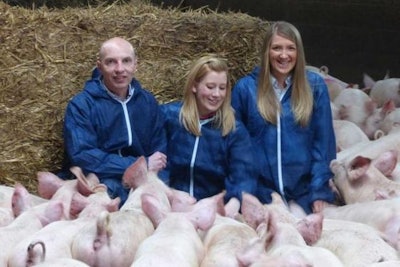
Interest in animal welfare continues to grow and, according to Nicky Amos, executive director of the Business Benchmark on Farm Animal Welfare (BBFAW), since the report was first launched in 2012, food companies’ progress in managing welfare is “remarkable and should be applauded.”
Shout out!
The ninth edition of the BBFAW, which measures policy commitment, performance and disclosure on animal welfare in food companies, was published at the end of March and, once again, a broiler producer and an egg company were among the four highest ranked companies.
Only four companies were granted Tier 1 status and amongst them were pig and broiler company Cranswick and egg producer Noble Foods. Tier 1 status denotes that these companies show “leadership” in the field.
In 2020, the benchmark analyzed 150 global food companies, including 63 food producers and manufacturers. For those critical of food producers, it is worth noting that it is this group that has become the highest scoring sub-sector in the farm animal welfare sector.
Food producers and manufacturers not only accounted for half of those companies in Tier 1, but were also the most represented in Tier 2, which recognizes companies for having welfare “integral to business strategy”. The 12 Tier 2 companies were: Barilla, Cargill, Danish Crown, Groupe Danone, Fonterra, Hilton Food Group, Marfrig Global Foods, Nestle, Noble Foods, Premier Foods and Unilever.
When and how?
The BBFAW has six tiers, with Tier 5 including those companies classed as having welfare “On the business agenda but (with) limited evidence of implementation”.
A couple of days before the latest BBFAW was released, the U.K. government was urged by a number of Members of Parliament not to backtrack on its commitments to ban the import of foie gras produced using gavage.
An open letter, organized by campaign group Animal Equality, which, as far as I am aware has no connection with the BBFAW, and signed by politicians of various political parties, called on the government to outline specifically when and how it plans to ban imports.
The country’s Department for Food and Rural Affairs (DEFRA) announced a few week ago that it was looking to enact a ban “in the next few months”, says Animal Equality, which is pushing for the positive promise to become a reality.
The group notes that there is a degree of skepticism that the government will turn its actions into words. Perhaps it may want to nominate DEFRA for inclusion in Tier 5.


















